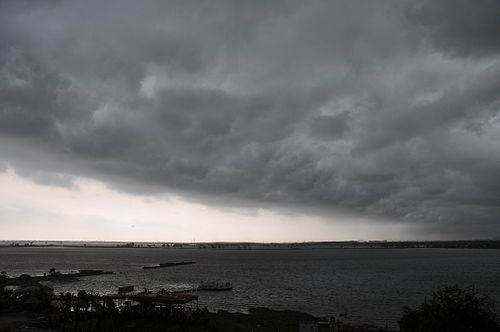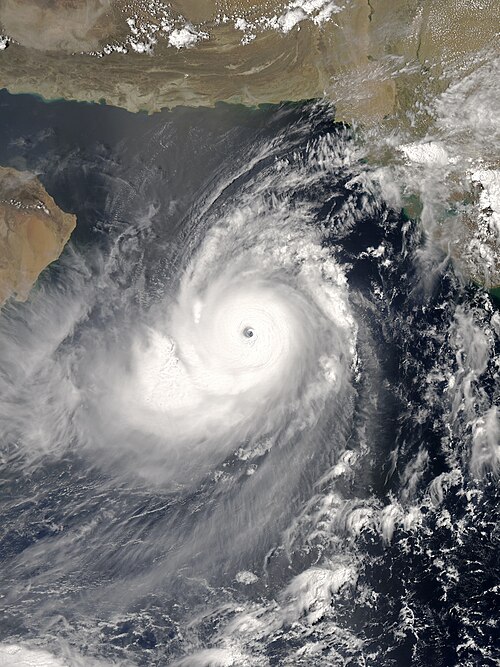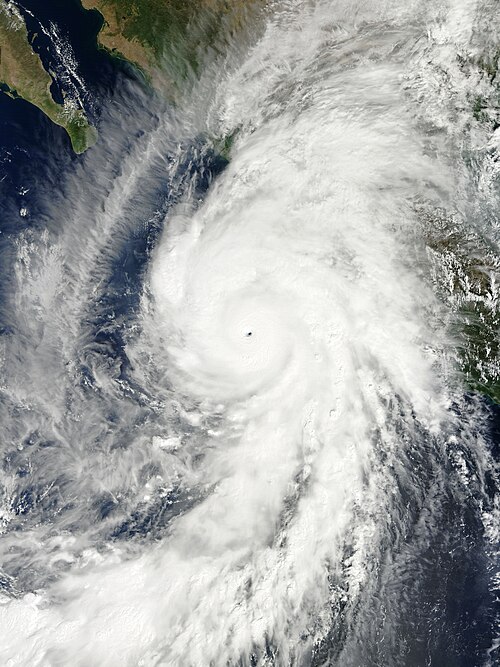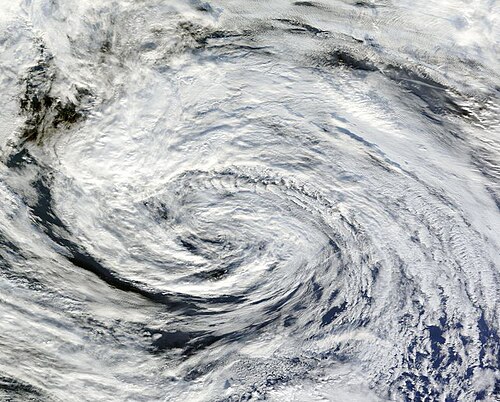Monsoonnoun
Any of a number of winds associated with regions where most rain falls during a particular season.
Monsoonnoun
Tropical rainy season when the rain lasts for several months with few interruptions.
Monsoonnoun
The rains themselves.
Monsoonnoun
Entire meteorological systems with such characteristics.
Monsoonnoun
A wind blowing part of the year from one direction, alternating with a wind from the opposite direction; - a term applied particularly to periodical winds of the Indian Ocean, which blow from the southwest from the latter part of May to the middle of September, and from the northeast from about the middle of October to the middle of December.
Monsoonnoun
A heavy rainfall in India associated with the southwest monsoon{1}.
Monsoonnoun
The season in which the monsoon{2} occurs.
Monsoonnoun
a seasonal wind in southern Asia; blows from the southwest (bringing rain) in summer and from the northeast in winter
Monsoonnoun
rainy season in southern Asia when the southwestern monsoon blows, bringing heavy rains
Monsoonnoun
any wind that changes direction with the seasons
Monsoon
A monsoon () is traditionally a seasonal reversing wind accompanied by corresponding changes in precipitation, but is now used to describe seasonal changes in atmospheric circulation and precipitation associated with annual latitudinal oscillation of the Intertropical Convergence Zone between its limits to the north and south of the equator. Usually, the term monsoon is used to refer to the rainy phase of a seasonally changing pattern, although technically there is also a dry phase.
Cyclonenoun
A system of winds rotating around a center of low atmospheric pressure.
Cyclonenoun
A low pressure system.
Cyclonenoun
(informal) The more or less violent, small-scale circulations such as tornadoes, waterspouts, and dust devils.
Cyclonenoun
A strong wind.
Cyclonenoun
A South Pacific and Indian Ocean weather phenomenon that results in wind speeds of around 150 to 200 km/h.
Cyclonenoun
A cyclone separator; the cylindrical vortex tube within such a separator
Cyclonenoun
A violent storm, often of vast extent, characterized by high winds rotating about a calm center of low atmospheric pressure. This center moves onward, often with a velocity of twenty or thirty miles an hour.
Cyclonenoun
In general, a condition of the atmosphere characterized by a central area of pressure much lower than that of surrounding areas, and a system of winds blowing inward and around (clockwise in the southern hemisphere and counter-clockwise in the northern); - called also a low-area storm. It is attended by high temperature, moist air, abundant precipitation, and clouded sky. The term includes the hurricane, typhoon, and tropical storms; it should not be applied to the moderate disturbances attending ordinary areas of low pressure nor to tornadoes, waterspouts, or "twisters," in which the vertical motion is more important than the horizontal.
Cyclonenoun
A tornado. See above, and Tornado.
Cyclonenoun
(meteorology) rapid inward circulation of air masses about a low-pressure center; circling counterclockwise in the northern hemisphere and clockwise in the southern
Cyclonenoun
a violent rotating windstorm
Cyclonenoun
a system of winds rotating inwards to an area of low barometric pressure, with an anticlockwise (northern hemisphere) or clockwise (southern hemisphere) circulation; a depression.
Cyclonenoun
another term for tropical storm
Cyclone
In meteorology, a cyclone () is a large scale air mass that rotates around a strong center of low atmospheric pressure, counterclockwise in the Northern Hemisphere and clockwise in the Southern Hemisphere as viewed from above (opposite to an anticyclone). Cyclones are characterized by inward-spiraling winds that rotate about a zone of low pressure.






















